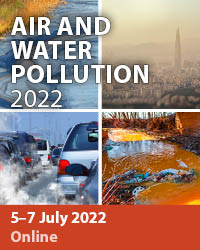30th International Conference on Modelling, Monitoring and Management of Air and Water Pollution
5–7 July 2022
Milan, Italy
Introduction
This conference is the merging of two successful events organised by the Wessex Institute, the International Conference on Modelling, Monitoring and Management of Air Pollution which started in Mexico in 1993; and the International Conference on Monitoring, Modelling and Management of Water Pollution which originated in Southampton, UK in 1991.
The meetings in the Air Pollution series have discussed and considered many important air pollution issues and the international nature of the attendees has ensured that the conference findings and conclusions enjoy wide and rapid dissemination amongst the air pollution science and policy communities. The series has demonstrated the widespread nature of the air pollution phenomena and has explored in depth their impacts on human health and the environment.
The scientific knowledge derived from well-designed studies needs to be allied with further technical and economic studies in order to ensure cost-effective and efficient mitigation. In turn, the science, technology and economic outcomes are necessary but not sufficient. Increasingly, the conference has recognised that the outcome of such research needs to be contextualised within well-formulated communication strategies that help policymakers and citizens to understand and appreciate the risks and rewards arising from air pollution management. Consequently, the series has enjoyed a wide range of high-quality papers that develop the fundamental science of air pollution and an equally impressive range of presentations that places these new developments within the frame of mitigation and management of air pollution.
The Water Pollution conference series has provided a forum for discussion amongst scientists, managers and academics from different areas of water contamination.
The environmental problems caused by the increase of pollutant loads discharged into natural water bodies requires the formation of a framework for regulation and control. This framework needs to be based on scientific results that relate pollutant discharge with changes in water quality. The results of these studies allow the industry to apply more efficient methods of controlling and treating waste loads, and water authorities to enforce appropriate regulations regarding this matter.
Environmental problems are essentially interdisciplinary. Engineers and scientists working in this field must be familiar with a wide range of issues including the physical processes of mixing and dilution, chemical and biological processes, mathematical modelling, data acquisition and measurement, to name but a few. In view of the scarcity of available data, it is important that experiences are shared on an international basis. Thus, a continuous exchange of information between scientists from different countries is essential.
All published papers from previous meetings are archived in the Wessex Institute eLibrary (www.witpress.com/elibrary) where they are easily and permanently available in Open Access format to the international community.
Conference Topics
The following list covers some of the topics to be presented at Air and Water Pollution 2022. Papers on other subjects related to the objectives of the conference are also welcome.
- Air pollution modelling and monitoring
- Atmospheric modelling and forecasting
- Aerosols and nanoparticles
- Emission studies
- Global, regional and local studies
- Interdisciplinary studies on air quality
- Health risk
- Indoor air pollution
- Industrial and transport air pollution
- Biogenic and biomass emissions
- Anthropogenic pollution
- Coastal and offshore water pollution
- Agricultural water contamination
- Industrial water pollution
- Climate change effects
- Emerging pollutants
- Air/water legislation and justice
- Low carbon strategies
- Education, public perception and engagement
- Socio-economic-political causes and consequences
- Emergent techniques and technologies
- Pollution dynamics
- Dredging work
- Wastewater and saltwater management
- Water reuse
- Groundwater and aquifers
- Freshwater quality
- Urban water
- Sustainable urban drainage systems
- Case studies
